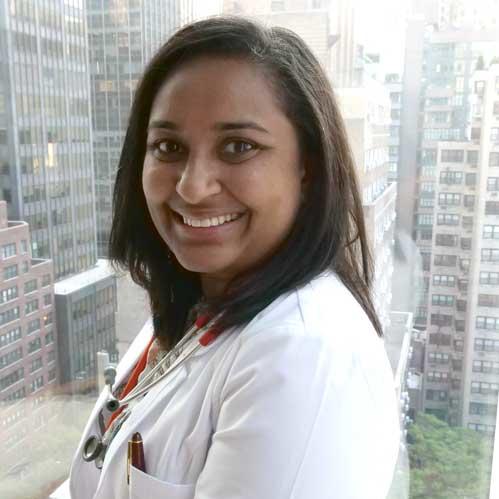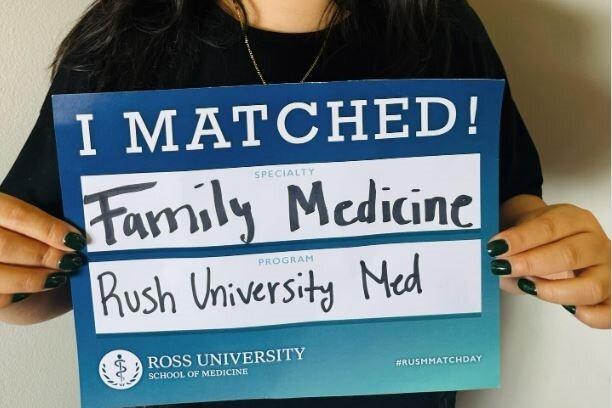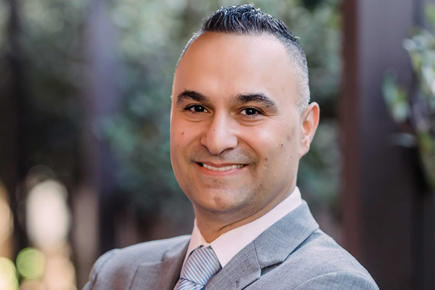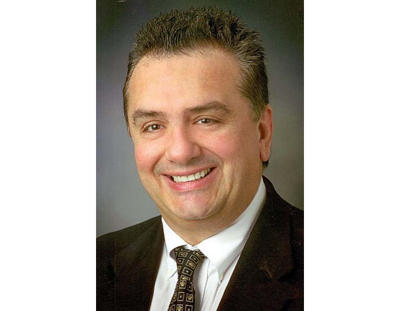The global pandemic has created a different path for parents who are new to homeschool, requiring them to juggle remote learning with everyday life. And while there’s a plethora of helpful tips, the one-size-fits-all mold often neglects those struggling to teach children with special needs. Ross University School of Medicine (RUSM) alumna Spandana Nallapati, MD, advocates for students who require extra care and attention during such a pivotal time. “This is the invisible population. The system is broken, and parents are exhausted.”
Nallapati, a developmental behavioral pediatrician who works at an East coast children’s specialized hospital, states the online learning environment is ill suited for students who routinely work with a physical therapist, occupational therapist, speech therapist or a classroom aide. They are now expected to succeed by completing information packets and attending virtual classroom lessons without any one-on-one guidance. Combine that with parents who aren’t trained as teachers, don’t speak fluent English or can’t afford time off work to assist, and it becomes a recipe for increased anxiety, frustration and interrupted academic progress.
“We can’t expect neurodiverse children to switch to a remote model that was not designed with them in mind and think they will learn and progress in the same way as their neurotypical peers,” explained Nallapati. “Support for this group is abysmal. It can be difficult for some who are autistic to self-regulate. The separation from classmates and lack of personal space at home as well as routines being severely compromised can cause melt downs. Those with ADHD can’t keep on task — they are easily distracted and can miss assignments easily or simply refuse to log in; others are receiving busy work and not being checked on because they’re no longer in the smaller special needs classroom they’re supposed to be in. It is understandably a difficult time for schools, but they need to be more accountable for all students.”
Think Outside the Box
Until there is appropriate school reform to address these issues, Nallapati encourages parents to research state organizations that can support their children’s needs, and to better understand their rights so they can advocate what’s best for their family. “The squeaky wheel gets the grease — be loud and demand that your kids get what they need. Why can’t a child spend an extra 30 minutes with a teacher or aide after school? Why can’t speech therapy time be increased now that it’s virtual?”
Nallapati suggests finding creative, family-friendly routines to improve everyone’s mental health. An activity as simple as a daily walk or watching travel shows together can improve mindset and become a constant on the calendar. And don’t forget the traditional standbys — reading, playing board games and watching movies, or trying other grade-appropriate ideas:
- Elementary School — cover math basics by asking for a kitchen helper to measure ingredients, or shop in the refrigerator and pay for items with money that require change back
- Middle School — for those with mild attention-deficit/hyperactivity disorder (ADHD) and learning disabilities who are easily distracted at home, let them create their own space with physical barriers for privacy
- High School — join new social media communities and start a discussion; learn about activities that have been of interest but weren’t feasible because of time constraints
Children Make Great Patients
Initially, pediatrics was not on Nallapati’s radar until a realization in clinical rotation. “Children are resilient. If you give them bad news, they take 10 minutes to process it and then move on. They remain fundamentally good despite what’s happening in the world.” Though she admits parents can be a challenge at times, she values the entire family dynamic because of the shared common goal — doing what’s best. “My father started me off on this journey and emphasized the importance of making a difference. I truly enjoy the continuum of making other people’s lives easier and better.”
Spending her childhood in India, Nallapati moved to New York as a preteen and now enjoys camping, hiking, running and scuba diving. She remembers joining RUSM because it was non-traditional and seemed “like an amazing life experience.” Nallapati hopes the unprecedented pandemic can be transformational as well — recognizing it as a time to inspire togetherness.
“Parents need to stop feeling guilty for doing the best they can,” she said, adding that it’s ok to occasionally break the rules with increased screen time or late bedtimes. She also urges parents to understand that teens and young adults with intellectual disabilities are resilient and will catch up if they fall a tad behind.
“Too many families get close to burn out because they don’t give themselves a break. Enjoy the time you have with one another and keep the lines of communication open. Turn the news off. Talk with your kids — validate their fears and anxiety, reiterating that you don’t have all the answers, but you will all get through this together. Share good news with them and let them know that sick people do get healthy.”
Learn More
Visit RUSM for more information about earning a medical degree.




